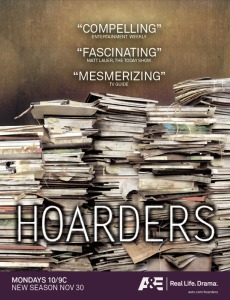Recently I wrote a post about why some people might choose psychiatric medication over seeing a therapist. (Fine, so it wasn’t that recent. >.<) I promised a followup post about a belief that I hold concurrently–everyone should see a therapist.
Now, before everyone freaks out, let it be known that I say “everyone” only in the most theoretical of ways. Meaning that, I recognize that as things are today, what I’m proposing isn’t really possible. But in the Happy Fun Miriam Land of the future, where stigma against mental healthcare is gone, insurance coverage is reasonable and available to the majority of people, and research has identified effective therapeutic interventions for most mental problems, everyone should and would be able to go to therapy.
For now, I’ll qualify what I’m saying with this: if you are able to see a therapist, you should, and if you are able to take your children to see a therapist, you should.
Why?
Well, why do we have regular dental and physical checkups? Why do children receive vaccines? Why do we make an appointment with a doctor when we think we’re coming down with something serious?
Hopefully the answers to those questions are self-evident.
Clearly, it is acceptable–and even expected–that people seek two types of healthcare throughout their lives: preventative and palliative. We should see a doctor regularly to make sure that nothing’s going seriously wrong with our bodies, and we should see a doctor when we suspect that something IS going seriously wrong with our bodies.
This much isn’t in dispute. But what about our minds?
For the most part, people wait until things are really, REALLY wrong with their mental state before they go see a psychologist. (And some don’t go even then, but that’s a different story.) For instance, I didn’t see a psychiatrist for my depression until I wanted to kill myself. People with eating disorders typically don’t receive care until they’re dying, or close to it. People with anxiety issues don’t get help until their anxiety is preventing them from having any semblance of a normal life.
Like most physical maladies, mental illnesses don’t just come out of nowhere. They usually develop from years and years of poor coping strategies and maladaptive beliefs. For instance, I remember being as young as 6 and constantly thinking that everyone secretly hates me, nobody wants to be my friend, and everyone’s talking behind my back. Guess what? When I was 18, I still basically believed that. Except by then, my beliefs had become self-fulfilling prophesies, and they had reinforced themselves until it became nearly impossible to get rid of them. Wouldn’t it have been so much easier if a child psychologist had helped me get over them 15 years ago?
My little brother, age 10, thinks he’s ugly. He has adorable curly hair, itty-bitty freckles on his face, and beautiful blue eyes. He’s thin and athletic, but thinks his stomach is fat and sometimes does crunches in his room. He hasn’t really learned how to make friends yet, and he has nobody to teach him. As a result, he thinks nobody will ever want to be his friend, and he chooses to brag and show off for attention rather than try to make other kids want to be his friends.
My brother does not have depression, an eating disorder, or even–believe it or not–a serious case of narcissism. What he also doesn’t have, however, are effective mental tools for interpreting the world and for being happy. And he’s not going to find these tools on his own.
What if, in addition to physical checkups to make sure that kids’ bodies are developing correctly, that they’re learning good hygiene, and that they’re eating well and exercising, we also had regular mental checkups to make sure they’re developing good mental habits?
Clearly, not everybody is going to need constant mental healthcare like I do, and like everyone else with a serious mental illness does. Most people would be totally fine checking in with a trusted family therapist every once in a while. But others, like my brother, would seriously benefit from catching the problem before it mushrooms into the sort of thing that I went through.
Even if people never do develop diagnosable mental illnesses, unhappy children often grow into unhappy adults. Ever had a boss who made your life miserable by demanding constant ass-kissing to protect her fragile ego? Ever dated a guy whose fear of commitment destroyed the relationship? Ever had a bully in high school whose inability to relate to others in a positive way greatly affected your own life?
These people have psychological issues. I’m not saying that in a degrading way at all; many people have issues. But because most people don’t think that they should see a therapist unless they want to off themselves, people like these usually don’t get help.
Although I strongly despise the mindset that people with mental problems should be treated as personal inconveniences, the fact is that people do affect each other emotionally. Imagine if every time someone got a contagious illness, all they could do was just continue going about their daily lives until it passed, infecting everyone they came into close contact with. Luckily, that’s not how it works; most people go see a doctor when they realize they’ve come down with something. What if people did the same for mental problems?
I think that’d be a much more pleasant world to live in.
And I promise I’m not just saying that because I’m going to be a therapist and want money.




